The DNA of Campus Fryslân: Local solutions for global challenges
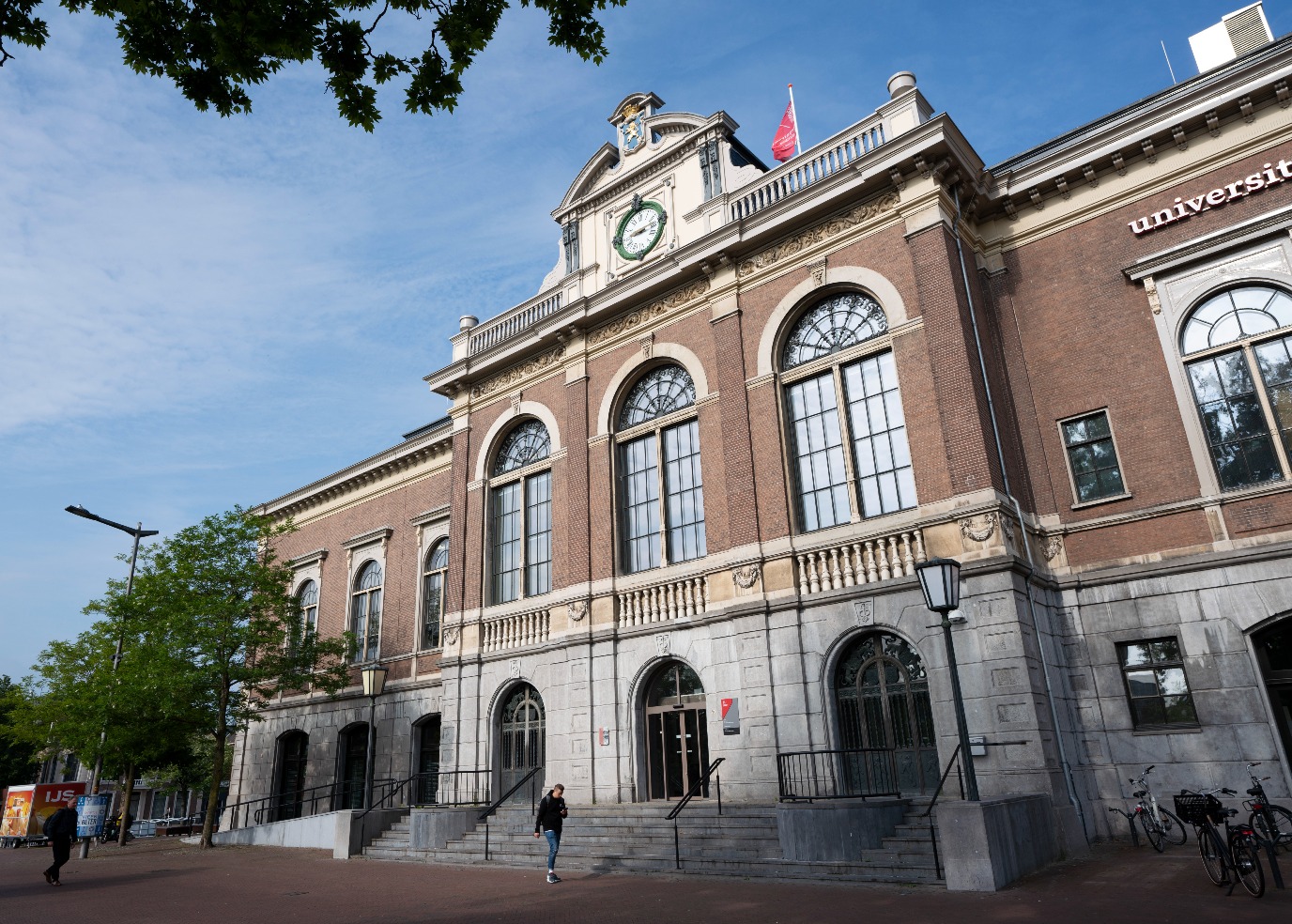
Mission-driven, interdisciplinary, and a strong connection with society and the business community: Campus Fryslân’s profile ties in seamlessly with the University of Groningen’s latest strategy. Partners involved talk about the UG’s newest Faculty, which is now firmly rooted in the capital of Friesland. ‘Without Campus Fryslân, we would not have set up shop in Leeuwarden.'
‘From toddler to PhD,’ is how Abel Reitsma proudly describes the educational opportunities that are available in Leeuwarden. As an alderman for the municipality, he clearly sees the added value of Campus Fryslân, the Faculty of the University of Groningen in Leeuwarden. ‘Campus Fryslân has really made its mark, and I say that on behalf of the Province of Friesland as well. I see a knowledge institution that is firmly rooted in the local and regional context and simultaneously has an international perspective on the major challenges of our time.’
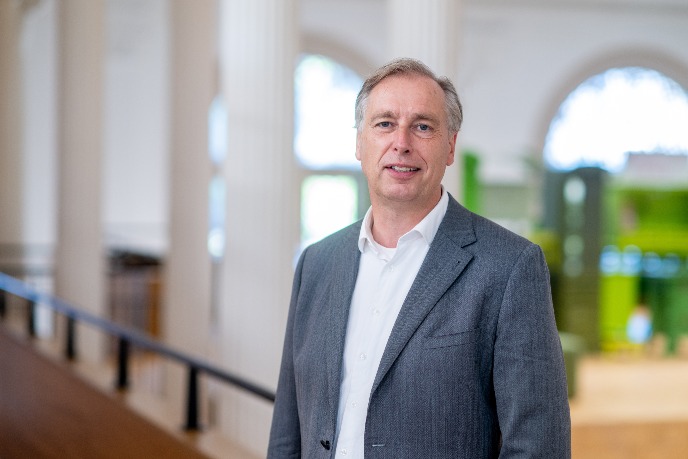
This observation fits in well with Campus Fryslân’s motto: Global challenges, local solutions. Based on this principle, the Faculty came to Friesland in 2016, supported by the region. In 2018, Campus Fryslân officially opened its doors in the impressive former stock exchange building in central Leeuwarden. ‘We have come a long way since we opened our doors in 2018,’ says Dean Tjalling Halbertsma. ‘There are strong ties and a close collaboration with our knowledge partners in Fryslân, we offer excellent, interdisciplinary teaching and research, and we have a particularly large and dynamic PhD community, which currently consists of more than 50 PhD students.’
The choice to establish the University in Friesland was deliberate, says Vice Dean Indira van der Zande. ‘Thanks to Campus Fryslân, there is no need to leave Friesland if you want to pursue an academic degree. Our partners really do see us as the University of Friesland.’ At the same time, there is a close collaboration with other knowledge institutions. ‘The minors offered by universities of applied sciences in Leeuwarden are tailored to the entry requirements of our Master’s programmes, making it easy for students to seamlessly continue their studies. We know each other well and focus on similar topics. The collaboration between the various educational institutions is firmly rooted in Leeuwarden. That makes the work even more interesting: you work with people from the field who ask very different questions offering you a fresh, new perspective.
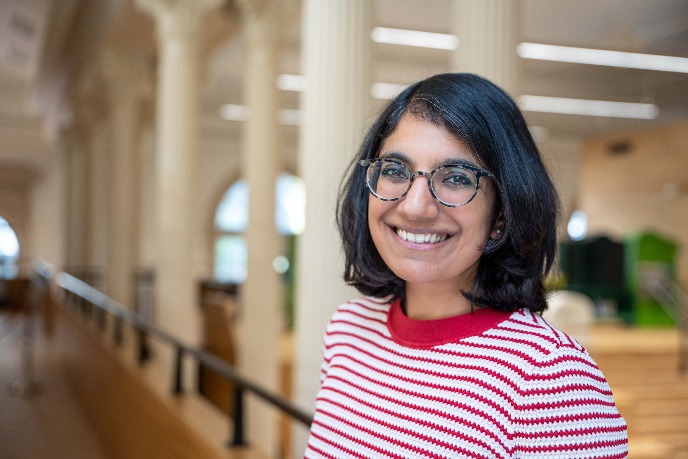
Small-scale and direct impact
Van der Zande has been working at Campus Fryslân since 2017 and was closely involved in the launch of the Faculty’s Global Responsibility & Leadership University College Bachelor’s programme as Director of Education. ‘We started developing the curriculum based on one central question: what knowledge and skills will students need in ten to fifteen years’ time to make a meaningful contribution to the world?’
The degree programmes offered at Campus Fryslân, including two Bachelor’s programmes and four Master’s programmes, are small-scale and strongly focused on societal issues. Students work on these issues in so-called Living Labs. ‘Together with external organizations, they tackle society’s pressing problems. This form of education should definitely not be regarded as an internship, but rather as a consultancy project that produces concrete results. It’s unique that students can already get involved in something like this during their Bachelor’s degree. This approach goes beyond simply acquiring fundamental knowledge — although that is important too. The emphasis will always be on practical applications, combined with critical reflection.’
Teddy Lagerweij, Bachelor’s student of Global Responsibility & Leadership and student assessor, is also very positive about the collaboration with partners. ‘For example, I am involved in a Living Lab at the Social Food Gardens network in the north of the Netherlands, where people can grow their own healthy food, which is great because you deal with local problems and are able to bring about change right away. That’s a different kettle of fish from abstract policy. Our programme also teaches you to look at challenges critically, for example by breaking established patterns.’
For four years in a row, Global Responsibility & Leadership has been ranked the best Bachelor’s programme in the Netherlands, according to the Dutch Higher Education Guide for Universities. The other degree programmes offered by Campus Fryslân also receive high scores. Nevertheless, Van der Zande knows that attracting students to Leeuwarden remains a challenge. 'There are no doubts about the quality of our degree programme. If we were located in a city like Groningen or Leiden, our degree programmes would probably be packed. We also notice that students are almost always excited about Leeuwarden once they’ve started studying here,’ something that Lagerweij can confirm. ‘I honestly believe that Leeuwarden is a fantastic city for students. You easily meet new people here, and there are plenty of facilities for students. On top of that, we don’t have any housing issues here.’
Broad base and local needs
The teaching and research at Campus Fryslân is characterized by its interdisciplinary approach: degree programmes have a broad base covering a wide range of disciplines. Van der Zande: ‘We train students to become generalists with in-depth knowledge who are able to switch between disciplines. In the Data Science & Society degree programme, for example, we combine ethical and legal insights with practical skills such as programming and working with data tools. Students will have the opportunity to delve into the technical details, but most of them will focus on bridging the gap: the technology is there, but how does it fit into society, and how does that relate to legislation and ethics?’
In addition, the teaching and research at Campus Fryslân is highly transdisciplinary, with an emphasis on collaboration with regional partners. The fact that many of Campus Fryslân’s PhD students are externally funded is striking. The research themes and degree programmes are in line with the Fryslân Knowledge Agenda and link global issues to Frisian themes from the outset. This involves interdisciplinary research by science teams focusing on three themes: Sustainable Environment and Wellbeing, Circular Society and Economy, and Responsible Governance and Technology.
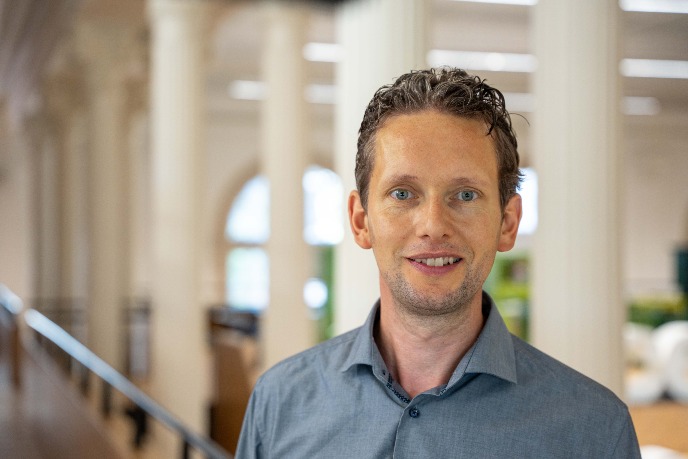
Researcher Tim van Zutphen, assistant professor of Health & Food, was recently nominated for the Ben Feringa Impact Award for his project on healthy nutrition in Leeuwarden. ‘We see major health disparities between the different neighbourhoods in Leeuwarden. One of our findings was that people with a migrant background find it difficult to choose healthy products in a Dutch supermarket.
With the help of the organization 058 Samen Sterk in Leeuwarden, Van Zutphen asked residents to prepare their own meal using Dutch vegetables every week. ‘Initially, it was met with scepticism. Wearing your freshly ironed shirt, while trying to convince people of the benefits of a healthy diet, is probably not very helpful. But along the way, we managed to build trust. Ultimately, our efforts resulted in a collection of exceptional recipes, prompting us to compile them into a cookbook. At the same time, we assessed whether there was a shift in awareness regarding healthy nutrition, and indeed there was. We wanted to meet local needs and come up with tangible solutions. This type of research and teaching is in Campus Fryslân’s DNA.

The Faculty also collaborates closely with companies in the region. A prime example of this collaboration is Datamaran, a company that uses an AI platform to assist organizations with their sustainability strategy. It has offices in New York, London, Valencia, and—since 2023—Leeuwarden, says Dennie Stevens, Chief People Officer at Datamaran. ‘Without Campus Fryslân, we would not have set up shop in Leeuwarden. In our view, Campus Fryslân is extremely interesting, because the Faculty combines sustainability, entrepreneurship, and technology in a way we had not seen before.’
Without Campus Fryslân, we would not have set up shop in Leeuwarden.
The collaboration is proving successful, according to Stevens. ‘Many students join us as interns or through the Living Labs, and we already have a number of alumni working for us as well. I have never encountered such motivation in students before. I hope we can continue to build on this collaboration in the years to come.’
New challenges
Mission-driven, interdisciplinary, and a strong connection with society and the business community: Campus Fryslân’s profile ties in seamlessly with the University of Groningen’s latest strategy. As a fifth-generation university’, the UG wants to engage in structural collaboration with the world around it, drawing on all possible academic disciplines. ‘When I read the strategy, I see a blueprint of what we have set up here,’ says Van der Zande. ‘It’s important that the University wants to continue along these lines.’
New themes will be higher on the agenda in the coming years, says Dean Halbertsma. ‘We are looking ahead and want to play a meaningful role in the major societal themes that are currently relevant in Friesland and beyond. We are exploring collaborations with knowledge partners around us, such as Planbureau Fryslân, Wetsus, and NHL Stenden, in new areas such as security, societal transitions, and administrative processes. These are areas and fields that we have not yet sufficiently developed within the University, but which have only gained in significance in recent years, and need to be further shaped here in Leeuwarden at Campus Fryslân. This is how we contribute to local and regional challenges within current and global challenges.’
Halbertsma stresses that Campus Fryslân values collaboration with other faculties within the University in order to ‘bring the University of Groningen even closer to Friesland’. ‘At the end of the day, we’re a young, dynamic Faculty within a broad and ambitious University, and we want to help shape the University of the North.’ Van der Zande adds that she hopes politicians will continue to acknowledge the importance of international talent. ‘Without international students, a university faculty in Leeuwarden simply cannot exist. Due to a demographic decline in the region, an influx of talent from outside is vital. It’s much more interesting to maintain a diverse classroom. We want to be part of society, and society simply is diverse. If you take away that diversity, you will also lose the critical view.
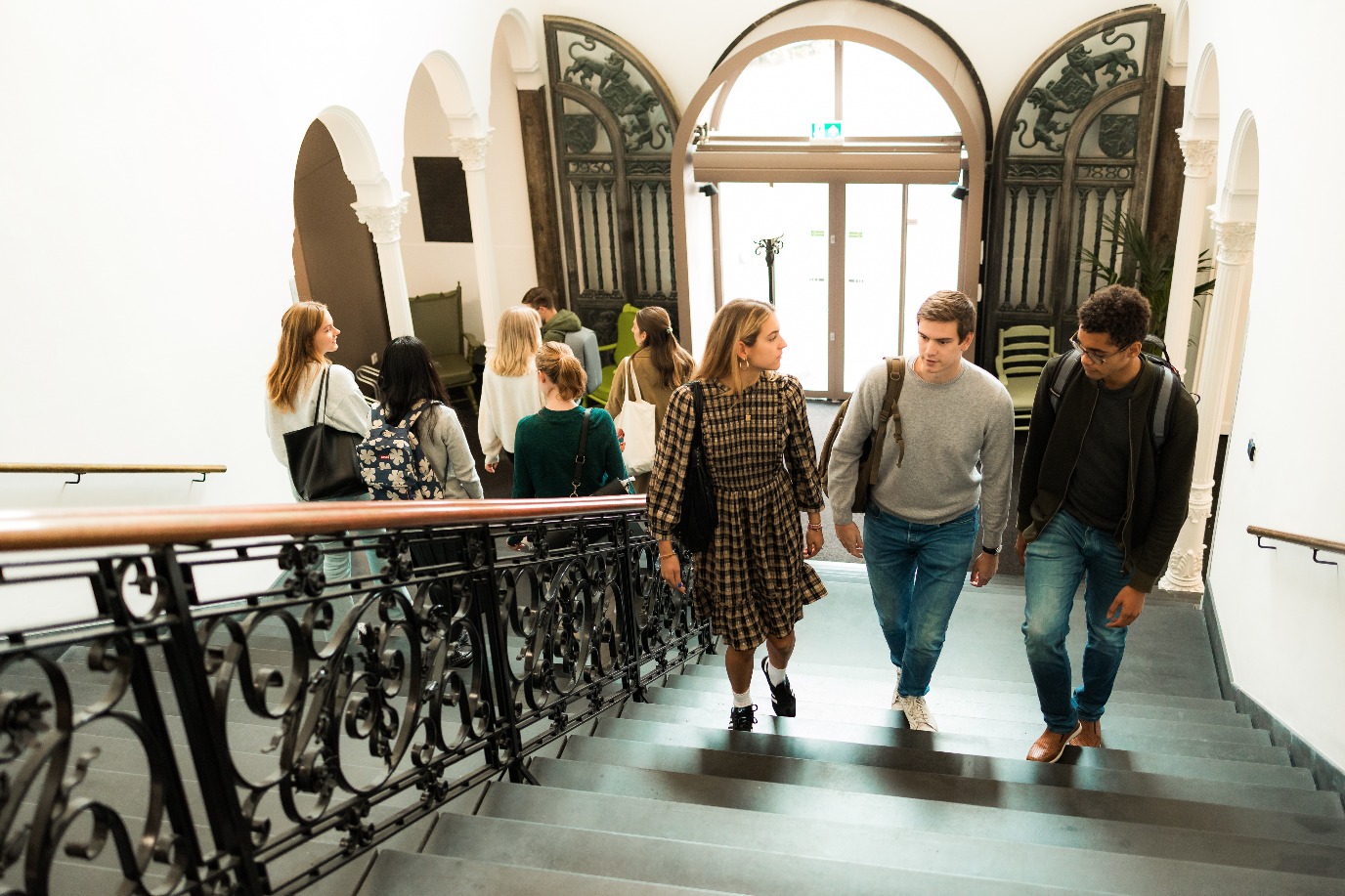
Author: Jelle Posthuma (Impact journalist/wetenschapsjournalist,
Schools for Science and Society)
Photographers: Wouter Brem, Piet Douma, Fotobureau Hoge Noorden
More news
-
15 September 2025
Successful visit to the UG by Rector of Institut Teknologi Bandung
